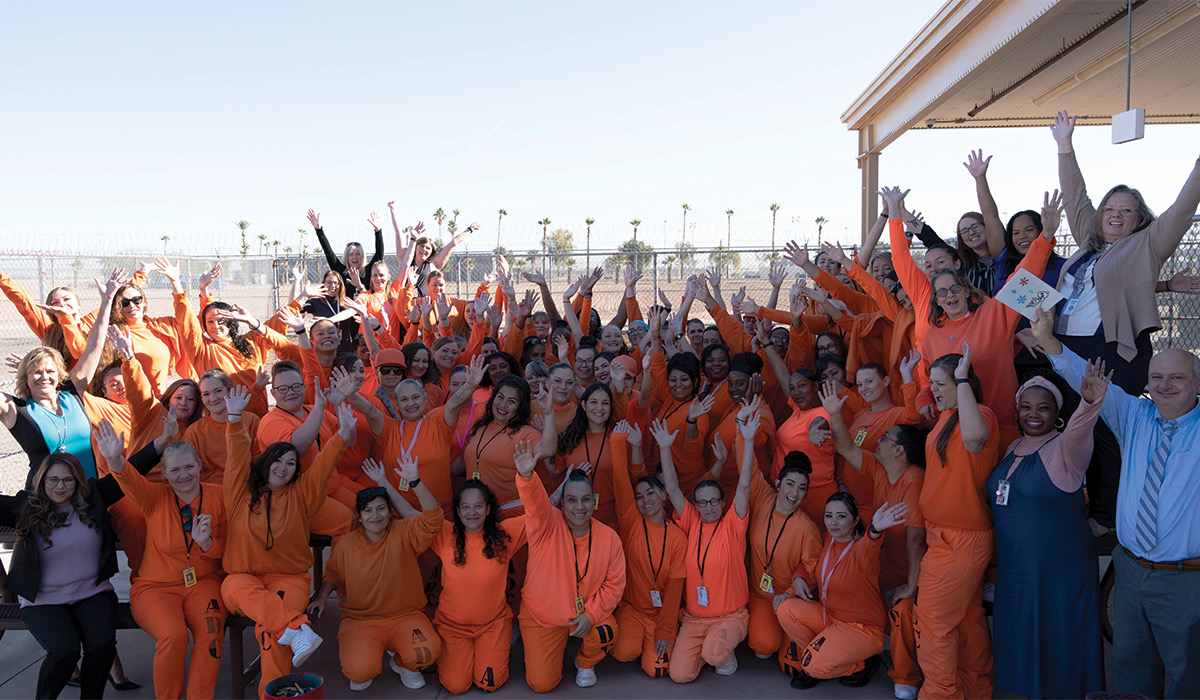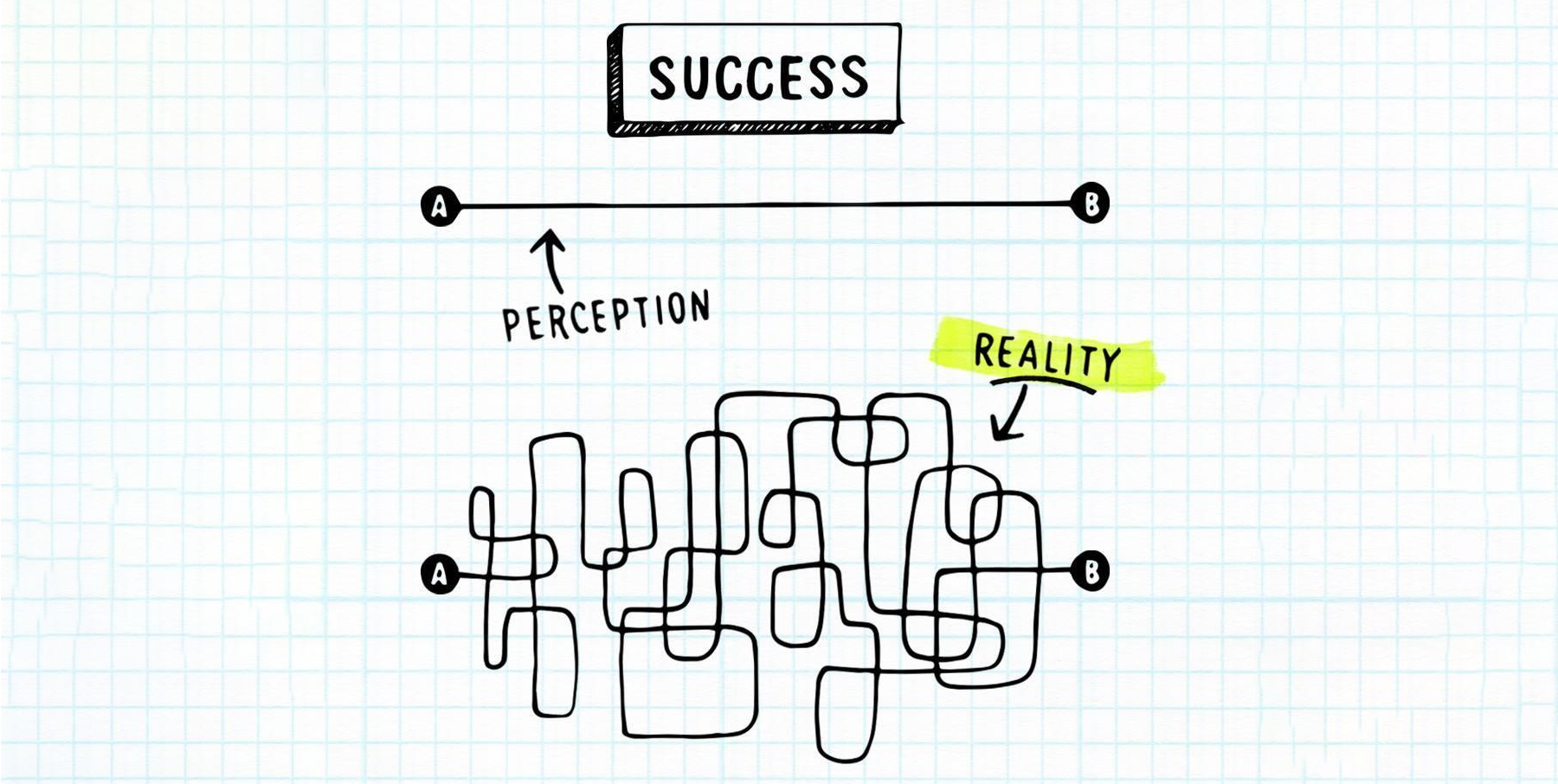Building Workforce – Reducing Recidivism and Strengthening the Economy
Televerde ‘s unique business model provides a pipeline and a lifeline. Delivering its fully integrated B2B sales, marketing and customer care solutions to its global clientele has created success on one level; providing second-chance employment – and a path to reach that opportunity – is the other half of its story.
“I learned that I can learn,” shared Ashlee Liberty in a candid interview earlier this year about Televerde’s employment programs. “I was about eight years into my incarceration … I had done absolutely nothing to prepare for my future. I’d never really thought of life beyond my incarceration. I was just living in survival mode.”
Phoenix-based Televerde provides sales and technical services to some of the biggest tech companies in the world, which include SAP, Adobe, Honeywell and Microsoft. “It’s a unique company in that it was founded almost 30 years ago based on the idea that, by giving women in prison jobs and training and education while they were incarcerated, we could build a profitable business while providing them with the opportunity to develop the marketable skills that would help them to transition back into the community successfully,” explains Michelle Cirocco, chief social responsibility officer at Televerde and executive director at Televerde Foundation, which was launched in 2020 to provide the targeted workforce development program that addresses issues related to successful reentry and transition for formerly incarcerated women in addition to specific job skills.
The for-profit Televerde company operates nine call centers, seven of which are located within women’s correctional facilities in Arizona, Indiana and Florida and employ approximately 400 incarcerated women. “Over the years, we’ve had about 4,000 women transition back into the community successfully after working for the company on the inside,” Cirocco says.
A study the company did with ASU on the socioeconomic impacts of the work it was doing found that the women who worked for Televerde had 94% higher employment rates and earning salaries four times the national average for formerly incarcerated women. The company felt that contributed to the fact that the recidivism rate was less than 6% for the women who worked for the company compared to a national average of about 58%.
“Once we were armed with this knowledge of the impact it was having, we as a company had made a commitment that we wanted to provide 10,000 life-changing opportunities within the next decade. So, we started the Televerde Foundation out of a sense of moral obligation – we needed to provide the women with the tools and resources and the support they needed to successfully transition back into the community and into well-paying jobs,” Cirocco says. “Because we knew and we understood that, as a company, we couldn’t hire everybody who was getting out of prison at our corporate office – we just weren’t big enough – we wanted to make sure they had everything they needed to take skills they’d learned to get a job at another company. So, the foundation was started with that in mind.
“And then we partnered with ASU to develop the workplace readiness curriculum, which is things like teamwork and collaboration, résumé writing, interview skills, job search strategies – all the things you need to get the job. That’s a six-month program the women go through.” The result is Televerde Foundation’s PATHS program: Prepare, Achieve and Transform for Healthy Success. The three-phased approach includes Career PATHS, PATHS Reentry and PATHS 2 Success.
Sharing that, in her 25 years with Televerde, Cirocco has seen the incarceration rate of women in our country grow 700%, she observes, “Because women only represent only about 10% of the incarcerated population in our country, there tends to not be very many programs available for them.” She believes it’s important to support women transitioning out of prison and notes how supporting these women can positively impact Arizona’s economy.
Liberty’s experience speaks to that. Introduced to Televerde’s program as Cirocco was launching the first round of Career PATHS, Liberty decided to “give it a shot” – and found “it actually, like, changed my life.”
A crucial aspect is the support system that’s built within the program. Explains Liberty, “I think as Michelle developed it, she thought of every aspect. She thought of, ‘OK, how can I train them as professionals? But as I train them as professionals, I also need to allow them to develop as people within their inner person.’ And so, the facilitators are formerly incarcerated individuals who’ve walked in our shoes.'”
Liberty is now a program specialist at Televerde Foundation. “I get to help develop and create and fill in some gaps that are with our program as we expand,” she says, and shares, “I’m currently enrolled as Ashland University and want to get a Bachelor’s of Science and eventually be a certified project manager.”
A Career PATHS Journey
“Within about three months of being in the program, it was like a light bulb went off because I then realized that, wow, I’ve done all this time of my incarceration and I’m about to get thrown out into the real world,” shares Ashlee Liberty, describing the program. “We were taking business fundamentals, business communication, with ASU professors. I learned that I can learn. I never as a child realized that. And I actually enjoy it and like it and want to do it now. But while I was doing that I also had all the personal stuff. … I was fearful of change and just life in general. While I was obtaining that knowledge and education and learning that I can develop as a person, I was also personally touching base on things like emotions and things that I had stuffed underneath me that we call ‘the baggage,’ the little bag that I had been carrying around. So, I started to unpack that in a sense.
“That’s the thing about Career PATHS – when you pair that together, I can grow and become an amazing professional. You can teach me things. But if I am an emotional wreck, ultimately I won’t show up at my best. And so, with those two paired together, it’s transforming.”
A study Televerde did with ASU on the socioeconomic impacts of the work it was doing found that the women who worked for Televerde had 94% higher employment rates and earning salaries four times the national average for formerly incarcerated women. And the recidivism rate was less than 6% for the women who worked for the company compared to a national average of about 58%.
This article originally appeared in InBusiness Phoenix


